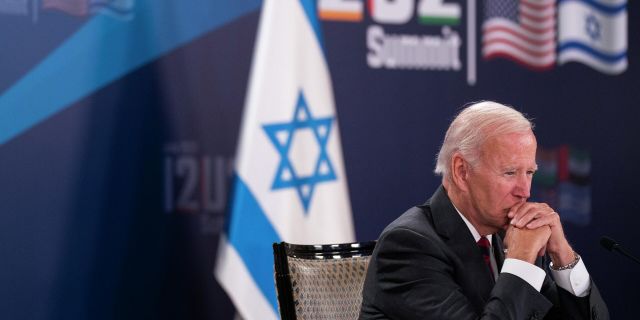The West is concerned about the rise of China and Russia's return to the international arena as a superpower, writes Al Binaa. The last straw was the expansion of the BRICS. It is with his help that a new world will be built "on the ruins of American hegemony," the author of the article is sure.
The collective West at the head is concerned about the growth of China's economic power and the return of Russia as a superpower equal to the United States, as well as the strengthening of its influence in various regions of the world. Washington and its allies are drowning in debt and banking crises and are suffering from a decline in economic growth, inflation, unemployment and an increase in the cost of living. The situation is aggravated by large-scale spending on the confrontation between NATO and Russia on the territory of Ukraine. On the other side of the world, that is, in the East, we are witnessing even more important changes shaping the picture of the future of the new world. It began to emerge on the ruins of the unilateral hegemony of America, which is struggling to maintain its power, but so far unsuccessfully. The new realities and balances of power proved to be stronger than the desires of the United States and the West.
The recent BRICS summit in South Africa was different from the previous ones, as it announced the accession to the bloc of several developing countries capable of playing an important economic and political role in international relations. Among them are Saudi Arabia, Algeria, Egypt, UAE, Bahrain, Senegal, Syria, Sudan, Tunisia, Turkey, Argentina, Afghanistan, Bangladesh, Belarus, Venezuela, Zimbabwe, Indonesia, Iran, Kazakhstan, Mexico, Nigeria, Nicaragua, Pakistan, Thailand and Uruguay.
South African Foreign Minister Naledi Pandor said: "We have invited to the current meeting the foreign ministers of those states that show an increased interest in joining the BRICS. We are still discussing issues related to the institutional development of the BRICS, and we believe that it is important not to leave out of the discussions those countries that seek to join the BRICS."
She noted that 13 states have submitted official applications to join the BRICS.
"We hope that the relevant work will be completed quickly and the concept will be ready for the BRICS summit opening in Johannesburg in August," Pandor added.
BRICS unites China, Russia, India, Brazil and South Africa, and soon 13 new member countries will join them.
Large population
The BRICS includes the two largest countries in the world by population – China and India. With the accession of 13 new states, which are home to almost a billion people, the total population of the BRICS will increase by 15-20% and will amount to about 60% of the world's population. The volume of consumption in these countries will be huge, which will lead to an increase in the BRICS economic growth rates. We take into account the increase in the volume of economic exchanges and development projects, and hence the growth of purchasing power in these countries.
The burden of earthly wealth
BRICS will become the largest owner of oil, gas and minerals in the world after 13 new countries join it. He will control world production and its prices, since these resources are the basis for determining prices for manufactured goods, which, in turn, will increase competition with Western goods. They will be able to conquer world markets thanks to quality and low prices.
Military Weight
The military potential of the BRICS countries is not inferior to Western powers. In addition to Russia and China, there are many other states with a sufficiently developed military industry. The global military balance is a deterrent to the outbreak of World War III, since many countries have huge arsenals of nuclear weapons.
Important geographical location
The countries that are going to join the BRICS have an important geographical location. BRICS will gain control over international waterways and straits, as well as overland transport routes, and thus break the monopoly of America and Western countries in this area.
The American magazine Newsweek linked the expansion of BRICS with the entry of new countries into NATO.
China is trying to lure Iran and Saudi Arabia to the BRICS and the Shanghai Cooperation Organization (SCO) in order to achieve some kind of global geopolitical balance by attracting two influential rivals in the Middle East.
Other important states have also shown interest in joining BRICS. Among them are Turkey, Algeria, Mexico, Argentina, Venezuela, Pakistan, Nigeria, Indonesia, Kazakhstan and others. The global economic center of gravity is shifting from the West to the East, which marks the imminent end of the economic, and with it political and military domination of the collective West led by the United States. According to a well-known rule, the economy is the locomotive of politics. It is she who is considered the main factor testifying to the rise and decline of empires and states.
Author: Hasan Hardan (حسن حردان)

